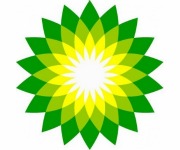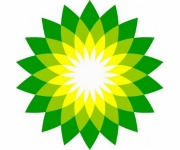
BP’s logo is of an offshore rig exploding with money.
Earlier this week, we noted that Hurricane Isaac washed tar balls onto beaches in Louisiana. The chunks of old oil appeared in an area that was heavily affected by the BP oil spill, prompting everyone to think, oh, look, BP oil is resurfacing.
Except BP. “Woah, woah, woah, not so fast, guys!,” a company spokesperson said in a statement that I am making up. “That seriously could have been from any other oil spill. Maybe it was the Exxon Valdez spill and it took a while to get here! Or maybe it’s from a future spill caused by Chevron, and Hurricane Isaac ripped a hole in the space-time continuum. We may never know the truth!” This is a bit of an exaggeration, I admit. The company actually said that it’s “important to fingerprint the residual oil to determine its origin,” and that “if any of it is connected to the Deepwater Horizon accident,” they “stand ready” to clean it up.
And voilà. From the Guardian:
Laboratory tests show that globs of oil found on two Louisiana beaches after hurricane Isaac came from the 2010 BP spill.
Tests run by Louisiana State University (LSU) for state wildlife officials confirmed that oil found on Elmer’s Island and Grand Isle matched the biological fingerprint of the hundreds of millions of gallons of oil that spewed from BP’s Macondo well.
On Wednesday, BP said oil from its spill had been exposed by Isaac’s waves and that the company would work to clean it up.
Good on them. Taking responsibility! Diving in to clean up their mess! I’m being intentionally effusive to set up what BP actually said, which is neither of those things.
BP said Wednesday some of the newly discovered oil was from the spill, while it said some of the crude may be from other sources, too.
BP’s ideal cleanup process would go like this: Two-person teams would be dispatched to every tar ball. One would perform the proper fingerprinting technique to identify it as having come from the Deepwater Horizon spill. Once identified, some hours later, the other person would pick it up and put it in a garbage bag. And then on to the next bit of oil, maybe stopping for lunch.
And those two-person teams might as well stick around for a while.
“We’re in year three and this seems to be the new normal for the Gulf Coast,” said [Auburn University Researcher Joel] Hayworth. “For some unforeseeable time, this is going to be the new normal for the beach.”
BP also disputes the existence of any “Gulf Coast.”
Update: BP would also like you to know that the spill was “the blue collar” people’s fault.




